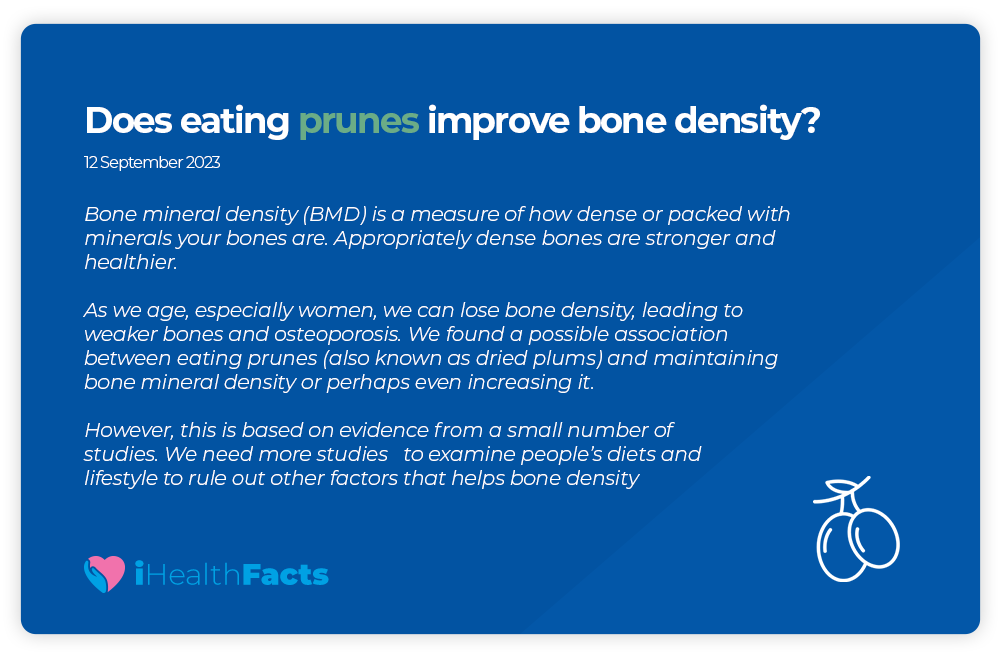The Evidence
We found four relevant studies on this subject:
- Study 1: 160 postmenopausal women, ate either 100g/day of dried plum or 100g/day of dried apple for 1 year. The study showed that the group who ate 100g/day of dried plum had increased bone mineral density, particularly at the ulna (a bone in your arm) and spine.
- Study 2: 48 postmenopausal women ate either 100g of prunes or 75g of dried apple per day. The study found that the bone mineral density at the ulna and spine increased more in group who ate 100g of prunes daily compared to group who ate 75g of dried apple daily.
- Other research focused on using smaller amounts of dried plums and prunes, which can be easier for people to incorporate into their diet. A study of 235 postmenopausal women showed that 50g of prunes daily was linked with maintenance of bone density levels at the hip, even though postmenopausal women tend to lose bone at a rate of 1% annually.
- Another study of 48 osteopenic (experiencing a loss of bone density) postmenopausal women showed that either 50g/day or 100g/day of dried plums was linked to total body bone mineral density not decreasing.
Overall, the evidence suggests a possible link between eating prunes and improved bone density, but it is not definite. To be sure, we need more detailed and larger studies that consider whether a person’s diet and lifestyle contribute to better bone density. This is the only way we can be sure that eating a certain amount of prunes daily does in fact help or not help bone density.
Guidelines and recommendations
- We did not find any guidelines or recommendations on this topic.
